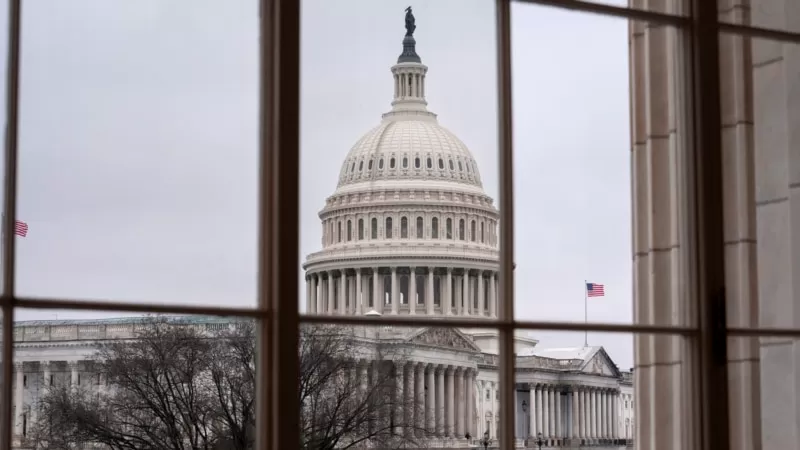U.S. lawmakers are working diligently to keep the government funded past the March 14 deadline, but there are still pressing issues to be resolved as Congress returns to work this week in the nation’s capital.
The main concern at hand is the enactment of an extension to the 2017 tax cuts and how to reduce the U.S. deficit without cutting vital safety net programs that benefit American voters.
President Donald Trump has urged lawmakers to pass a comprehensive bill that will play a crucial role in implementing his domestic policy agenda.
Despite Trump’s support for the House version of the budget, the Senate has passed a funding resolution on Friday that allocates $150 billion for military funding and $175 billion for border security. This measure also avoids the controversial cuts to Medicaid proposed in the House version.
Senate Majority Leader John Thune stated on Monday that Republicans are moving forward with legislation aimed at continuing efforts to deport criminal aliens, securing the border, and deterring illegal immigration. These efforts will also help restore respect for the rule of law in our country.
However, Senate Minority Leader Chuck Schumer has criticized the vote, stating that Republicans are prioritizing the needs of the wealthiest Americans instead of addressing the needs of middle-class families. Schumer emphasized that precious time is being spent on catering to the desires of the top earners in the country instead of finding ways to prevent the halt of essential services that millions of Americans rely on.
The decision to vote on the Senate version of the budget was made due to uncertainty surrounding the vote on the House version. In order to be signed into law, the two versions will need to be compromised and reconciled.
On Tuesday, the House is set to hold a procedural vote, but House Speaker Mike Johnson faces a slim Republican majority and cannot afford to lose any of his members in order to pass the budget.
Republican Representative Tony Gonzales and seven other House Republicans have raised concerns about potential cuts to critical programs such as Medicaid and food assistance funding, as well as other safety net programs. In a letter addressed to Johnson last week, they emphasized the serious consequences these cuts would have, particularly in rural and predominantly Hispanic communities where hospitals and nursing homes are already struggling.
Republican Representative Thomas Massie, a member of the conservative Freedom Caucus, and several other undecided House Republicans have also expressed reservations about the budget proposal that will be up for a vote.
Meanwhile, Congressional Democrats have raised objections to the Republican tax cut proposal, arguing that it will negatively impact lower-income and middle-class Americans who are already struggling with the rising cost of living and inflation.
In a “Dear Colleagues” letter sent on Monday morning, Democratic Leader Hakeem Jeffries urged Democrats to unite and oppose what he called a “GOP Tax Scam” that aims to benefit wealthy Republican donors and corporations at the expense of everyday Americans. Jeffries emphasized the need to stand strong and prevent the implementation of this legislation that could potentially slash $4.5 trillion in taxes for the wealthiest Americans, increase the national debt, and harm the Medicaid program.
In a recent post on Truth Social, Trump praised the collaboration between the House and Senate, calling them an “unbeatable TEAM.” However, he also noted that unlike the version proposed by Republican Senator Lindsey Graham, the House resolution fully implements his “America First” agenda. Trump made it clear that he supports the House version which covers all aspects of his agenda, not just a select few.
If lawmakers are unable to reach a compromise by March 14, it could lead to a partial government shutdown, leaving millions of federal employees without pay and causing the suspension of non-essential government services.
In conclusion, the coming week will be crucial for U.S. lawmakers as they work to find a solution that will keep the government funded without compromising vital safety net programs. It is essential that Congress works together to pass a budget that will benefit all Americans and contribute to the overall well-being of the country. Let us hope that they are able to put aside their differences and come to a resolution that truly reflects the needs and concerns of the American people.

